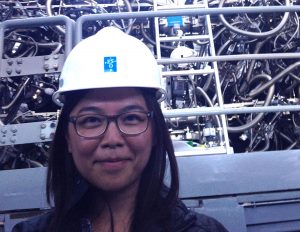
Former Dunlap Institute Postdoctoral Fellow Dr. Allison Man has been hired as an Assistant Professor in the Department of Physics at the University of British Columbia.
From her research in galaxy evolution, to science communication, to her involvement in WAISSYA, Man played a pivotal role as a Postdoctoral Fellow at the Dunlap Institute for many years.
The team at Dunlap checked in with Man to see how she’s doing, and congratulate her on her new role.
One of the things I look forward to most is training the next generation of astronomers. The Universe inspires curiosity and inquiry, and brings people together. Astronomy is a springboard for solving complex problems, and it’s rewarding to pass on knowledge and skills through research and teaching.
Of course, you recently made a big move. Tell us how you’re settling in?
Vancouver’s been treating me well so far! Moving during a pandemic was hectic but thankfully all went fine. I love being close to mountains and the ocean, and look forward to exploring them after the pandemic subsides.
Tell us a bit about your field of research.
I use multi-wavelength telescope observations to study how galaxies form and evolve. At Dunlap, I investigated why some galaxies cease to form stars. From galaxy spectra, I inferred the molecular and ionized gas content of distant galaxies, enabling new insights on the baryon cycle of galaxies. These measurements are valuable for galaxy evolution models.
What originally brought you to the Dunlap Fellowship program?
I appreciate the freedom that Dunlap Fellows have in setting their research directions. The astronomy community in Toronto is large and has expertise in a variety of topics. It’s a great place for postdocs to broaden their networks and collaborations. Moreover, the mandates of Dunlap Institute include training and outreach in addition to research, which align with my values. It’s an institute that excels in research and creates an impact beyond our field, which is inspiring.
What are you most proud of about your time at Dunlap?I got to work with several students through the Summer Undergraduate Research Programme (SURP). It’s been a lot of fun to share the joy of discovering the wonders of galaxies through telescope observations, and to see their progress over the summer. My last student Jeff Shen wrote up his first research project in a paper, which is remarkable!
Tell us about another Dunlap achievement.
I also got to support the growth of astronomy in several African countries in various ways, e.g., contributing to the Pan-African School for Emerging Astronomers, giving a workshop for graduate students at the first IAU Symposium in Ethiopia, and sponsoring a research intern. I’m grateful for Dunlap’s support that helped provide opportunities for more equitable access to astronomy.I also got to support the growth of astronomy in several African countries in various ways, e.g., contributing to the Pan-African School for Emerging Astronomers, giving a workshop for graduate students at the first IAU Symposium in Ethiopia, and sponsoring a research intern. I’m grateful for Dunlap’s support that helped provide opportunities for more equitable access to astronomy.
How do you think Dunlap was helpful in advancing you into your current new role?
I appreciate Dunlap’s efforts to provide a stimulating research environment, and its support for my professional endeavours (e.g., participating in Homeward Bound, hosting scientific visitors). These experiences helped me grow as a scientist. I learnt from my mentors as well as my peers over various discussions at Dunlap, giving me inspirations on leading a research group and making science more welcoming to all people.
If you’d like to continue to follow Man’s research, you can visit her faculty page.

Man at a roundtable discussion with students at the Kenya Optical Telescope Initiative meeting.
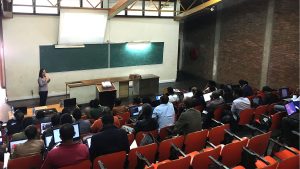
Man delivers a workshop for graduate students at the first IAU Symposium in Ethiopia.
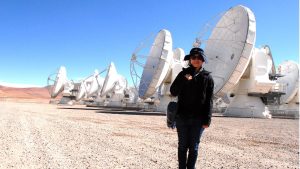
Man visits the Atacama Large Millimeter Array.
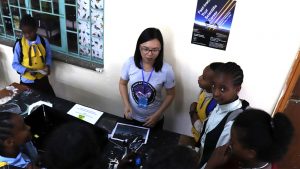
Man hosts an astronomy outreach activity for primary school children in Addis Ababa, Ethiopia.
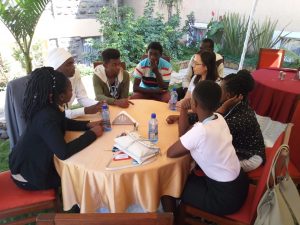
Man at a roundtable discussion with students at the Kenya Optical Telescope Initiative meeting.
